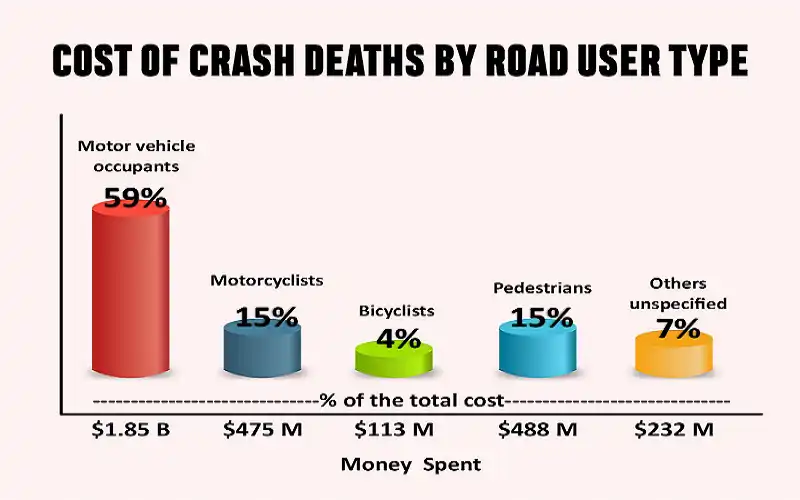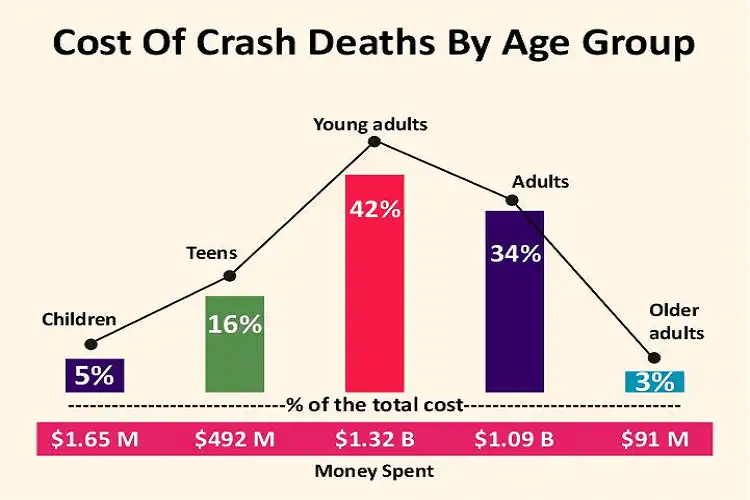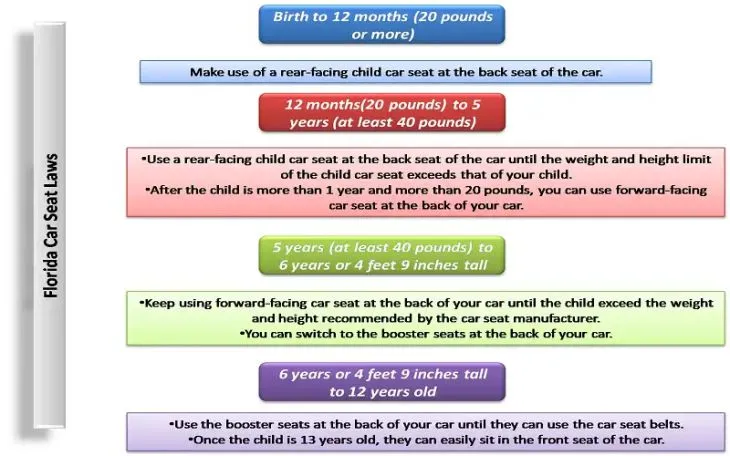Florida child seat laws are specified in section 316.613 of the 2022 Florida child seat statutes. Some of the legal requirements of Florida’s child restraint laws as to how they must use the car seats include:
- Infants and toddlers from birth to 3 years must use a separate carrier device or integrated child’s seat.
- Children 4 to 5 years of age must use a separate carrier device, booster seat, or an integrated child’s seat.
- There are different options for children who are 6 years or older. They can use booster seats or a regular seat belt.
These laws are the minimum requirements and determine how the Florida car seat laws impact safety recommendations for you and your child. Furthermore, it can give your toddler, infant, or young child an opportunity to survive a car crash or prevent injury in case of a crash.
According to the Centers for Disease Control (CDC), $3.16 billion is spent on car accidents in Florida, including medical costs and other expenses.
Table of Contents
What are the car seat laws in Florida?
It is essential to understand the use and laws related to every car seat, including rear-seating, front-facing, and Florida booster seat laws to ensure the safety of children.
Source: Florida Highway Safety and Motor Vehicles Department (FLHSMV)
Installing a car seat may be a complex task for parents. Unfortunately, the outcome can be an improper installation of the car seat.
However, you can make sure to follow the child safety seat laws by searching for Safe Kids Inspection Stations in Florida. The certified Florida Highway Patrol (FHP) trooper may also ensure safe installation. Parents can try the NHTSA car seat safety inspection locator if they are unsure if they completed the installation properly.
Penalties For Violating Car Seat Laws In Florida
In 2019, the Centers For Disease Control (CDC) reports showed that there were 608 children under 12 who died in vehicle crashes, and 91,000 children were injured.
Parents who violate laws regarding child-restraint systems can face a penalty of $60 along with 3 points on their driver’s license. However, it depends on the court whether to waive the points or keep them active.
Fees and license points are the least severe consequences that a parent could face for violating child seat laws. Parents should understand that making proper use of child safety systems helps to reduce the risk of injury and even wrongful death.
Limitation Of The Florida Laws Statute
The statute is aimed to make the parents understand the safety tips for their children. However, they are not mentioned in detail. Understanding the statutes is sometimes challenging for the parents.
In the Florida car seat laws, the child restraint system is mentioned. However, the definition of the child restraint system is not clearly defined. The statute only specifies the minimum requirements. Therefore, it is essential to abide by the minimum requirements to avoid your child from any motor vehicle accident.
Height And Weight Requirements
Florida law does not state clearly the height and weight requirements of every car seat. However, it does refer to age requirements and limits. Parents must be sure to use a federally approved child safety seat or child restraint system. Further, the system must be crash tested.
According to the American Academy of Pediatrics, there are guidelines for every federally approved car seat for toddlers, infants, and children. Since every child is unique and can grow at different rates, the age limits are just cutoffs. This is to ensure the maximum safety of every child in a potential accident.
Exceptions To Florida Car Seat Laws
Exceptions only apply to booster seats, and only for medical emergencies or severe medical conditions. However, if a child is not using a seat belt, you must have a medical document to make law enforcement aware of their condition.
According to the National Highway Traffic Safety Administration (NHTSA), full car seats are recommended for children aged 0 to 4 and booster seats for children 8 to 12. In addition to this, NHTSA also specifies that a child must be seated in a booster seat until a normal seat belt properly fits them.
Taxi drivers, sedans, vans, buses, motor coaches, and other passenger vehicle drivers will not be responsible for the children if they are hired for transportation without any pay. Parents are held responsible for the transportation of their children.
However, if you are driving someone else’s child, a booster seat is not compulsory. The belt-positioning booster seat must be properly fastened if used.
In some cases, parents may not have any idea that a car seat was improperly placed. In other cases, the child may move the seat into an improper position without parents realizing it. If you have been accused of violating child car seat laws in Florida, you may want to consider speaking to a Fort Myers car accident lawyer.


